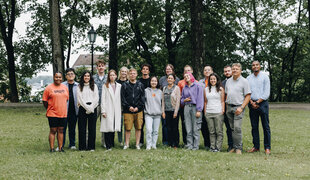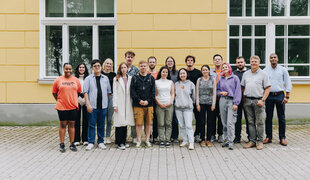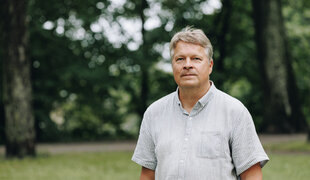Secessionist and Statehood Bids in Times of Crises
On-site in Tartu, 28 July - 6 August 2025
With wars in Ukraine, Gaza and Karabakh dominating contemporary international relations the study of secessionist bids and the quest for statehood and recognition becomes paramount. Students of International Relations can benefit from a thorough and comprehensive understanding of the concepts and practices of secessionism as well as the way in which these aspects impact international order. Questions regarding peace and violence in secessionist bids as well as the possible outcomes of secessionist wars continue to dominate both academic and policymaking debate, making this topic worthwhile for discussion and study.
This course highlights fundamental questions of sovereignty and statehood in the context of secessionist conflicts. It offers an insight into the topics such self-determination and sovereignty practices, survival pathways, incomplete and negotiated secessions. We will also explore the topics of “frozen conflicts” and de-facto states and their agency. We then turn to analysing the politics of recognition, counter-secession strategies and engagement without recognition as well as the success and failure of secessionist movements. This course relies mostly on first hand research and is comparative in nature, with students having the opportunity to explore different cases of secessionist bids from across the world through a combination of teaching, independent work as well as discussions based on various films and a fieldtrip to Narva. A separate part of the course will be dedicated to a simulation exercise in where students will have the chance to gain first-hand experience of negotiation techniques as well as practical knowledge of the Israel-Palestine conflict.
Information about the course
Focus area: | Secessionist conflicts | Coordinating unit: | Johan Skytte Institute of Political Studies |
Study Field: | International Relations | Course Leaders: | Prof Eiki Berg |
Format: | Summer Course | Location: | Lossi 36, Tartu |
Course dates: | 28 July - 6 August 2025 | Language: | English |
ECTS: | 3 | Study group: | MA/PhD |
Lecturers
Prof Eiki Berg | Dr Shpend Kursani |
| Professor of International Relations at the University of Tartu. He has published widely in leading peer-reviewed journals on different aspects of de facto state dynamics. He is co-editor of The Politics of International Interaction with De Facto States: Conceptualising Engagement without Recognition (Routledge, 2018) and co-author of De Facto States and Land-for-Peace Agreements: Territory and Recognition at Odds (Routledge, 2022). In 2012, he received National Science Award in the field of Social Sciences, for the research in “Identities, Conflicting Self-Determination and De Facto States”. | Lecturer at the University of Tartu. He defended his PhD thesis on Contested States: The Struggle for Survival and Recognition in the Post-1945 International Order (European University Institute, 2020). He has published on coordinated recognition practices of de facto states and has ongoing works on conceptual, theoretical, and methodological aspects of the study of de facto states. |
Application deadline: 30 April 2025
Application period: 1 April - 30 April 2025
NB! All of the applicants are required to pay a non-refundable application fee (read more here) of EUR 25. Your application will only be processed after the University has received the fee. The application fee is required to facilitate the admissions process and will not be refunded, regardless of the admission result.
Course fee: 700EUR
Includes:
Study materials
8 days of academic work with lecturers
Certificate of completion (3 ECTS)
4 cultural events in the evenings
NB! Transportation and accommodation costs are not included. The course fee does not cover participant's lunch during the summer school.
Monday, 28 July
9:00 – 10:00 Information session by the UniTartu Summer School Team
10:00 – 13:00 Self-determination and Sovereignty Practices
13:00 – 14:00 Lunch
14:00 – 16:00 Film screening and discussion “How to Start Your Own Country” (2011)
Tuesday, 29 July
10:00 – 13:00 Peace and Violence in Secessionist Bids: What Works?
13:00 – 14:00 Lunch
14:00 – 16:00 Film screening and discussion “The Divided Island” (2024)
Wednesday, 30 July
10:00 – 13:00 De Facto States and “Frozen Conflicts”
13:00 – 14:00 Lunch
14:00 – 16:00 Film screening and discussion “PMR: In the State of Limbo” (2014)
Thursday, 31 July
10:00 – 13:00 Patronage and De Facto State Agency
13:00 – 14:00 Lunch
14:00 – 16:00 Film screening and discussion “Domino Effect” (2014)
Friday, 1 August
10:00 – 13:00 Politics of Recognition
13:00 – 14:00 Lunch
14:00 – 16:00 Film screening and discussion “The Agreement” (2013)
Saturday, 2 August
Fieldtrip to Narva
Sunday, 3 August
Fieldtrip to Narva
Monday, 4 August
10:00 – 13:00 Counter-secession Strategies and Engagement without Recognition
13:00 – 14:00 Lunch
14:00 – 16:00 Film screening “Somaliland: An Experiment in Democracy” (2015)
Tuesday, 5 August
10:00 – 13:00 Success and Failure of Secessionist Movements
13:00 – 14:00 Lunch
14:00 – 16:00 Film screening and discussion “Bon Voyage” (2021)
Wednesday, 6 August
10:00 – 13:00 Negotiation and simulation exercises
13:00 – 14:00 Lunch
14:00 – 16:00 Simulation exercise: Israel-Palestine Conflict
Thursday, 7 August
Departure
Upon completing the course, learners will:
- Be able to understand the various concepts and theoretical debates related to secession and statehood in International Relations
- Explore and analyse various cases of secessionist bids across the world
- Have practical understanding of negotiations in self-determination disputes.
Before the course:
Independent reading: 5 articles which introduce Northeast of Estonia as a region with permissive conditions available yet without secessionist movements.
After the course:
Reflection paper (1000 words)
Which previous knowledge is required?
Applicants should preferably have International Relations/Political Science background
Entry requirements:
- Online application form (application period April 1 - April 30 2025)
- Motivation letter (up to 1 page) that demonstrates the applicant’s motivation to participate, his/her expectations about the programme, how participation in the summer programme relates to his/her studies and interests, and how the applicant plans to use the gained experience and knowledge in the future.
- Transcript of academic records
- Copy of passport
PS: Only complete applications including all annexes submitted by the deadline will be considered for selection.
Article from 2024
Gaëlle at the summer course “Secessionist and Statehood Bids in Times of Crises" (read here)
Photo Gallery
Check out the photos from last year's summer school







